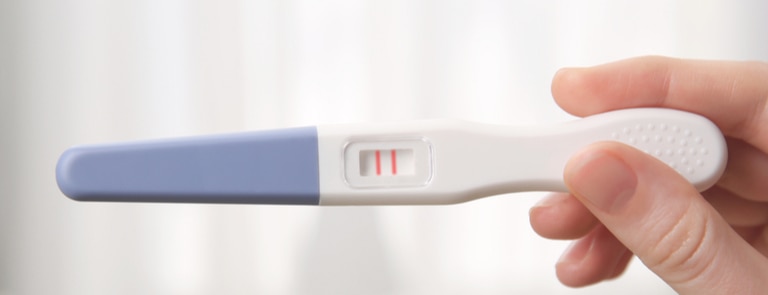15% off €25
Code:DEAL
Vitamins & SupplementsCBDCollagen & SilicaHair, Skin & NailsShop all Hair, Skin & NailsHair GrowthFunctional MushroomsVitaminsShop all VitaminsMultivitaminsVitamin AVitamin BVitamin CVitamin DVitamin EVitamin KVitamin DrinksMineralsShop all MineralsMagnesiumIronZincCalciumSeleniumChromiumSupplementsShop all SupplementsFibre SupplementsAcidophilus & Friendly BacteriaPeppermint OilGrapeseed ExtractLecithinCollagen & SilicaOmega & Fish OilsPlant Sourced SupplementsSuperfood SupplementsArnicaApple CiderRaspberry KetonesAloe VeraChondroitin & MSMCo Enzyme Q10Evening Primrose OilGarlicGlucosamineGlucomannanSeaweed, Kelps and AquaceuticalsDigestive EnzymesCharcoalWomen's HealthShop all Women's HealthMenopauseMenstrual SupportUrinary Tract HealthPregnancy & ConceptionMen's HealthShop all Men's HealthProstate HealthChildren's HealthConditionShop all ConditionCholesterolAllergy & Hay Fever CareAnxiety SupportBone & Muscle HealthMuscle Support & Joint PainBrain & Memory SupportWomen's HealthMen's HealthChildren's HealthCold & Immune SupportFatigueDigestive HealthHair, Skin & NailsHeart & CirculationLiver CareMood SupportSexual HealthSleep & RelaxationStress ReliefVisionHerbal & Licensed RemediesShop all Herbal & Licensed RemediesRescue RemedyAshwagandhaMilk ThistleGinseng & GuaranaHomeopathic & Flower RemediesShop all Homeopathic & Flower RemediesRescue RemedyVegan Vitamins & SupplementsHolland & BarrettVitabioticsNovominsSolgarNew NordicBetterYouBioglanNatures AidWild NutritionDAME3 for 2 Mix & MatchBuy one get one 1/2 priceSave up to 1/2 PriceBuy 1 Get 1 FreeOutlet3 for €18Short Dated August 2025Short Dated July 2025Dairy FreeGluten FreeSugar FreeSoya FreeAlcohol FreeSesame Seed FreeCelery FreeCereal FreeCrustaceans FreeEgg FreeLion's Mane MushroomApple Cider VinegarReishi MushroomChaga MushroomCollagenCastor OilShiitake MushroomVitamin EAloe VeraMaitake MushroomNew inFood & DrinkVegan Food & DrinkDried Fruit, Nuts & SeedsShop all Dried Fruit, Nuts & SeedsDried FruitNutsSeedsMixesChocolate CoatedManuka HoneyTeas, Coffee & Hot BeveragesShop all Teas, Coffee & Hot BeveragesCoffee & Coffee SubstituteMushroom DrinksTeasMatcha & Green TeaSleep & Relaxation TeaSlimming TeaWomen's Health TeasDrinks & JuicesShop all Drinks & JuicesMultipack DrinksProtein ShakesJuices & Health ShotsNatural Energy DrinksKombuchaSoft DrinksWaterAlcohol Free DrinksKefirSuperfoodsShop all SuperfoodsSuperfood PowdersMoringa PowderSpirulinaGoji BerriesBaobabChia SeedsHealthier SnackingShop all Healthier SnackingProtein BarsLow Calorie SnacksChocolate, Cakes & BiscuitsSavoury SnacksSweet SnacksSnack BarsCrisps & ChipsFlapjacksPopcornFood CupboardShop all Food CupboardCondiments & SaucesApple Cider VinegarSuperfoodsBreakfast CerealsHoney, Jams & SpreadsTinned FoodsRice, Pasta, Pulses & GrainsHoney, Jams & SpreadsShop all Honey, Jams & SpreadsManuka HoneyHoneyNut ButtersJams & ChutneysSpreadsPateBreakfast CerealsShop all Breakfast CerealsCereals, Bran & FlakesGranolaMuesliOats & PorridgeBreakfast BarsCookingShop all CookingCooking IngredientsApple Cider VinegarCondiments & SaucesSoya & Meat AlternativeSoup & Ready MealsRice, Pasta, Pulses & GrainsHerbs, Spices & SeasoningGravy & StockHome BakingShop all Home BakingBaking MixesBreadFlourSweeteners & Sugar AlternativesEgg SubstitutesDairy AlternativesShop all Dairy AlternativesOat, Rice & Hemp DrinksSoya DrinksNut DrinksCoconut DrinksNutritionally Complete FoodHolland & BarrettNaturyaGrenadeNakdPukkaHeath & HeatherManuka DoctorPerfectTedEgmont HoneyTREKBuy one get one 1/2 priceSave up to 1/2 Price3 for 2 Mix & MatchBuy 1 Get 1 Free2 for €6OutletIntro Offer3 for €18Gluten FreeDairy FreeWheat FreeSugar FreeEgg FreeMilk FreeNut FreeSesame Seed FreeSoya FreeCelery FreeApple Cider VinegarLion's Mane MushroomReishi MushroomChaga MushroomNew inSports NutritionProteinShop all ProteinClear ProteinProtein VeganMeal ReplacementsWhey ProteinMass GainersDiet ProteinCaseinSports SupplementsShop all Sports SupplementsSports CollagenBars, Drinks & SnacksShop all Bars, Drinks & SnacksEnergy BarsProtein BarsProtein ShakesProtein SnacksNutritionally Complete FoodMeal Replacement ShakesPre Workout & EnergyShop all Pre Workout & EnergyPre WorkoutAmino Energy PowdersIntra WorkoutKetoPost WorkoutAmino AcidsShop all Amino AcidsBCAAArginineCreatineShop all CreatineCreatine PowderRehydrationShop all RehydrationElectrolytesEnergy GelsVegan Sports NutritionShop all Vegan Sports NutritionVegan ProteinVegan Protein BarsVegan Pre Workout & EnergyVegan Amino AcidsVegan CreatineSports AccessoriesShop all Sports AccessoriesBottles & ShakersFitness GoalShop all Fitness GoalRecoveryMuscle & StrengthLean MuscleEnergy & EnduranceDiet & Weight LossKetoHolland & BarrettOptimum NutritionPrecision EngineeredApplied NutritionMyproteinGrenadeUSNNakdTriActiveSiSSave up to 1/2 PriceBuy one get one 1/2 price3 for 2 Mix & MatchBuy 1 Get 1 FreeOutletIntro OfferShort Dated August 2025Gluten FreeDairy FreeSugar FreeWheat FreeEgg FreePalm Oil FreeMilk FreeSoya FreeSesame Seed FreeCelery FreeVitamin ENew inBeautyAromatherapy & HomeShop all Aromatherapy & HomePure Essential OilsBlended Essential OilsBase & Carrier OilsHolisticSkincareShop all SkincarePremium SkincareFace CareBody CareSun CareTanning & BronzingEye CareLip CareFoot CareHand & Nail CareCBD BeautyWashing & BathingShop all Washing & BathingShampoo & ConditionerBathing AccessoriesShower Gel & Body WashDeodorantDentalHand WashSoapBath Soak & OilBody ScrubBath Bombs & SaltsFeminine CareIncontinence SupportHair CareShop all Hair CareShampoo & ConditionerHair ColouringHair MasksHair Oil & SerumHair Spray, Gel & MousseHair AccessoriesMother & BabyShop all Mother & BabyBaby Skincare & ToiletriesMakeupDr OrganicFaith in NatureNaturtintWeledaTisserandQ+AMiaromaTrilogyWildChilds FarmSave up to 1/2 PriceBuy one get one 1/2 price2 for €233 for 2 Mix & MatchOutletBuy 1 Get 1 FreeAlcohol FreeFluoride freeParfum FreePalm Oil FreeDairy FreeGluten FreeVitamin CTea TreeRosemaryHyaluronic AcidVitamin EAloe VeraRosehipLavenderSeaweedSalicylic AcidNew inWeight ManagementSlimming TabletsFat Burners, Binders & Appetite SuppressantsShop all Fat Burners, Binders & Appetite SuppressantsFat BurnersFat BindersAppetite SuppressantsShakes & Weight Management ShotsShop all Shakes & Weight Management ShotsMeal Replacement ShakesDiet Food & DrinkShop all Diet Food & DrinkDiet FoodLow Calorie SnacksSlimming TeaExercise SupportHolland & BarrettGrenadeOptimum NutritionHeath & HeatherPulsinUSNDiabloEat WaterKalloNudie SnacksSave up to 1/2 PriceBuy one get one 1/2 price3 for 2 Mix & MatchBuy 1 Get 1 FreeOutletShort Dated August 2025Gluten FreeSugar FreeDairy FreeWheat FreeMilk FreeCelery FreeCereal FreeCrustaceans FreeEgg FreeFish FreeApple Cider VinegarNew inNew InTrendingBuy one get one 1/2 priceSave up to 1/2 Price3 for 2 Mix & MatchBuy 1 Get 1 Free2 for €23Outlet2 for €6Intro OfferShop all Health & WellnessWomen's HealthMen's HealthImmunityJoints, Bones, & MusclesEnergyGut HealthSleep & RelaxationHolland & BarrettDr OrganicFaith in NatureVitabioticsNaturtintOptimum NutritionWeledaPrecision EngineeredApplied NutritionQ+ABuy one get one 1/2 price3 for 2 Mix & MatchSave up to 1/2 PriceBuy 1 Get 1 Free2 for €23Outlet2 for €63 for €18Gluten FreeDairy FreeAlcohol FreeSugar FreeParfum FreeSoya FreeWheat FreeEgg FreeSesame Seed FreeMilk FreeVitamin CApple Cider VinegarTea TreeLion's Mane MushroomHyaluronic AcidVitamin ERosehipAloe VeraLavenderRosemaryNew inArticlesAll articlesHealthFood & nutritionGut healthImmunityJoints, bones & musclesWomen's healthWellnessHair & skinMental wellbeingSeasonalSleep & relaxationSports nutritionRecipesAll recipesGluten freeLow sugarVeganDairy freePodcast












